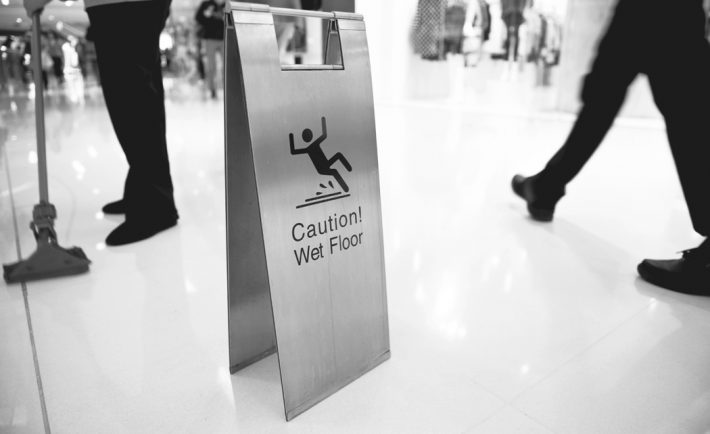Now, a person with a fear of heights is unlikely to take a job in the construction industry; especially one that involved scaffolding and ladders.
A person with a fear of clowns is unlikely to take a job with a traveling circus.
And a person with a fear of snakes is unlikely to take a job at a reptile zoo.
As is true for so many of us, if we are afraid of something, we are less likely to take on a job or career path that brings us face to face with those things that are prone to giving us nightmares.
However, some workplace fears can’t be easily avoided. Sure, we might not work in places involving heights, snakes, or clowns, but that doesn’t mean we are immune from situations that could cause us stress, anxiety, panic, and yes, downright fear.
And the same is true for your employees.
What fears are we talking about? Well, consider the following, and if you suspect that your employees are struggling with them, it might be time to allay their fears by taking the necessary steps to manage them.
#1: Health and safety fears

Everything You Need To Know About Health And Safety Compliance
How safe is your workplace? If your employees fear for their lives when they come into work each day, you are probably going to see a drop in their productivity levels if their fear is affecting their morale.
You need to tackle this fear head-on; taking steps to risk-assess your business, and to remove (where possible) any possible dangers.
On a very basic level, this should include giving your employees training on how to safely use potentially dangerous pieces of equipment. You should give them the correct safety equipment too, especially if they have to enter high-risk areas. You also need to listen to their safety concerns, so maintain an open-door policy so your workers can speak to you about their worries.
There might be also be issues affecting your business premises, and they might cause health and safety fears in your employees. You should take further measures to ensure safety on your site then, such as renovating or repairing elements of your business premises if there are obvious signs of wear and tear. And if your premises are located in an area prone to natural disasters, you might also want to take the necessary steps to secure your building. A soft story retrofit might be considered essential if earthquakes were a possibility, for example, and you might need impact-resistant shutters around your building if hurricanes were common in your locale.
And then there is the issue of bullying to consider. If the mental and physical wellbeing of any of your employees is being put at risk because of a workplace bully, you need to tackle the problem according to your policies.
You won’t be able to hold onto your best employees if they don’t feel safe at work, so to reduce their fears, take the necessary steps to protect them from harm.
#2: The fear of you
Employee Management: What Bosses Most Commonly Get Wrong
Why should your employees be afraid of you?
Well, do you rule with an iron fist? Do you berate them for the smallest of mistakes? Do you threaten them with the sack if they don’t meet their expected targets? Do you shout ‘go away every time they dare to knock on your office door?
If you identify with the above, then you need to change your leadership style. A bullying, aggressive, and negative leadership style is rarely going to garner the best results. The more fear you strike into the hearts and minds of your workers, the more likely they are going to resent you. Walkouts might become commonplace, and you might also find yourself with a hefty fine if an employee takes you to an employment tribunal in retaliation to your bullying ways.
Of course, you might not be an aggressive employer at all. However, you might cause your employees to worry if you behave in such a way as to give them cause to fear for their jobs. If you make bad spending decisions, for example, your employees might fear that you are driving your business towards bankruptcy. And if you are resistant to change, your employees might worry that your business will close because it’s falling behind with modern consumer and industry changes.
Should you relate to the above, then you might want to involve your employees more when it comes to decision-making. They might have ideas that could prove useful to your business, so let them speak, be that in a meeting or through having an open-door policy in your workplace.
So, ask yourself. Are your employees afraid of you? If they rarely speak to you, perhaps in fear of retribution, or if they have been spotted visiting job sites recently, perhaps as a means to find a more secure job, then you might need to consider yourself and the way you run your business. Speak to them (in a kindly way), and get to the bottom of any problems that you may be causing them.
#3: The fear of failure
The Common Issues We Face When It Comes To Our Careers
Are you giving your employees the opportunity to succeed in their jobs? Or are they continually threatened by the prospect of failure?
Think about it. If they haven’t had the correct level of training for their job roles, then you are reducing their chances of success. If you are setting them unrealistic targets, then failure might be an inevitability. If you are asking them to take on roles that are unrelated to their job descriptions, then they might not have the skills needed to complete their tasks satisfactorily.
As the employer, you need to pay for the training that your employees need. You need to remember that your employees are only human and that they might not have the capacity to meet the targets you set. And you need to focus on their talents, ensuring that the tasks they have to do are more closely aligned to their skill-levels. By taking these steps, you are reducing the possibility of failure, and consequently, your employees fear of making a blunder.
You should also handle failure responsibly. If an employee screws up, don’t berate them if they can’t be blamed for their mistakes. It might be because they lacked the relevant training, for example. And remember to be an encouraging boss. If you can uplift and support your employees when they fail, you might improve their overall morale, and spur them on to try harder.
You might also bring up the subject of failure with your employees. While you should stress that you always want the best from them, you might still let them know that it’s okay to fail sometimes. Let them know that it’s what they do with failure that counts, such as learning from their mistakes, so they are less likely to fail again.
By taking the steps we have suggested here, you will take away that fear of failure, and the ensuing fears that might follow, such as the fear of embarrassment, rejection, and, as we mentioned earlier, the fear of you!
Finally
You can sometimes spot signs when your employees are afraid. You will notice it in their work levels when they underperform, perhaps because of the low morale caused by their fears. You will suspect that they might be fearful of something if they regularly take sick days. And if they show signs of anxiety in the workplace, such as agitation, restlessness, and avoidance of certain situations, then you will know something is clearly wrong somewhere.
As the employer, you need to take action. Help your employees overcome their fears in whatever way is appropriate, and you should start to see the positive effects of your actions. Begin by following our suggestions in this article.
Thanks for reading.
